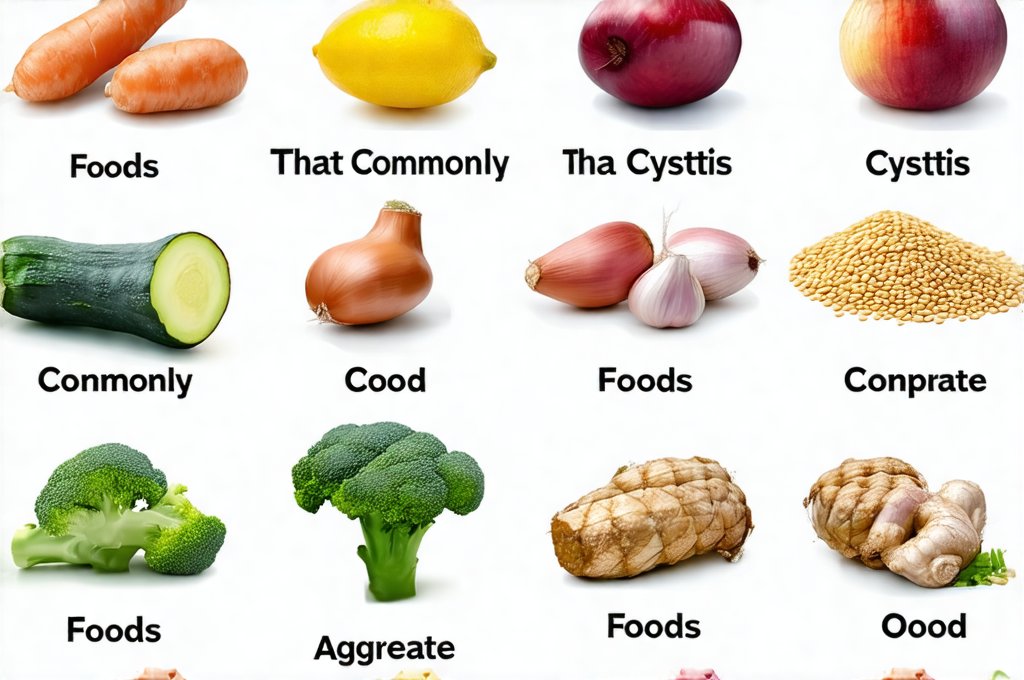Cystitis, often referred to as a urinary tract infection (UTI), is an incredibly common ailment, particularly affecting women. While antibiotics are frequently prescribed and effective treatments exist, understanding how diet can influence cystitis symptoms – both positively and negatively – is becoming increasingly recognized as crucial for long-term management and prevention. Many individuals find that certain foods seem to trigger or exacerbate their symptoms, while others offer soothing relief. This isn’t merely anecdotal; the connection between dietary choices and bladder health stems from the inflammatory nature of cystitis itself and how specific food components can either fuel or calm inflammation within the urinary tract.
The goal isn’t necessarily to eliminate entire food groups – unless a clear sensitivity is identified – but rather to become aware of potential triggers and make informed choices that support overall bladder health. This article will delve into foods commonly reported to aggravate cystitis symptoms, exploring why they might cause issues and offering strategies for navigating dietary adjustments. It’s important to emphasize that individual sensitivities vary greatly; what bothers one person may not affect another. Listening to your body and keeping a food diary can be immensely helpful in identifying personal trigger foods.
Common Dietary Aggravators
The most frequently cited culprits are those known to irritate the bladder lining or promote inflammation. These aren’t necessarily “bad” foods, but their consumption might need to be moderated during cystitis flare-ups or even limited long-term for individuals prone to recurrent infections. Acidic foods, for example, can directly irritate a sensitive bladder, while caffeine and alcohol act as diuretics, potentially increasing urgency and frequency of urination – symptoms already heightened by cystitis. Sugary foods and processed carbohydrates contribute to inflammation throughout the body, including the urinary tract, creating an environment more conducive to bacterial growth.
Many individuals with cystitis find that spicy foods exacerbate their symptoms. Capsaicin, the compound responsible for the heat in chili peppers, can irritate the bladder lining. Similarly, citrus fruits – while rich in vitamin C – contain citric acid, which can be a potent irritant for sensitive bladders. Tomatoes and tomato-based products fall into this category as well, due to their acidity. It’s also worth noting that artificial sweeteners are often reported to worsen symptoms; some individuals believe they cause bladder irritation or contribute to inflammation. Learning about foods that aggravate the bladder can help you make informed choices.
The Role of Histamine & Food Sensitivities
Beyond direct irritants, a growing body of evidence suggests that histamine intolerance and broader food sensitivities can play a significant role in cystitis flares. Histamine is a naturally occurring compound involved in immune responses. Some foods contain high levels of histamine or trigger its release within the body. When an individual has difficulty processing histamine – due to low diamine oxidase (DAO) enzyme activity, for example – it can lead to various symptoms, including bladder irritation and increased frequency.
Fermented foods like aged cheeses, sauerkraut, and yogurt are naturally high in histamine. Other histamine-rich foods include smoked fish, processed meats, spinach, avocados, and eggplant. Identifying and minimizing these foods may be beneficial for some individuals with cystitis, particularly those experiencing more chronic or unexplained symptoms. An elimination diet, guided by a healthcare professional, can help pinpoint potential sensitivities and guide dietary changes. It’s important to understand how simple natural foods impact the urethra.
Identifying Your Personal Triggers
The best approach to managing cystitis through diet is personalized. Here’s how to begin identifying your individual triggers:
- Keep a detailed food diary: Record everything you eat and drink, as well as any associated symptoms (frequency of urination, urgency, pain level). Be specific about ingredients and portion sizes.
- Elimination Diet: Remove suspected trigger foods for a period of time (typically 2-4 weeks) to see if your symptoms improve. Then, reintroduce them one at a time, carefully observing any reactions. This should be done under the guidance of a healthcare professional.
- Focus on anti-inflammatory foods: Simultaneously incorporate foods known to support bladder health and reduce inflammation (see section below).
- Hydration is key: Drink plenty of water throughout the day – ideally, around eight glasses – to help flush out bacteria and dilute urine.
Foods to Support Bladder Health
While focusing on what to avoid can feel restrictive, shifting the focus to incorporating bladder-friendly foods is a more positive approach. Anti-inflammatory foods are particularly beneficial, as they help calm the immune system and reduce irritation within the urinary tract. These include fatty fish rich in omega-3s (salmon, tuna, mackerel), berries (blueberries, strawberries, raspberries) packed with antioxidants, and leafy green vegetables like spinach and kale.
Foods containing probiotics can also be helpful, as they support a healthy gut microbiome, which is closely linked to immune function. Fermented foods like kefir or kombucha (in moderation for those sensitive to histamine) are good sources of probiotics. Finally, incorporating foods rich in vitamin C – excluding citrus fruits if you’re sensitive – can help strengthen the immune system and protect against infection. Sweet peppers and broccoli are excellent options. Consider safe cleansing foods to support urinary health.
The Importance of Professional Guidance
It’s vital to remember that dietary changes should complement, not replace, medical treatment for cystitis. If you suspect your diet is contributing to your symptoms, consult with a healthcare professional – ideally one familiar with functional medicine or integrative approaches – who can help you develop a personalized plan. Self-treating can be risky and may delay appropriate medical care. A registered dietitian specializing in bladder health can also provide valuable support and guidance on dietary modifications. They can assist with identifying food sensitivities, creating balanced meal plans, and ensuring adequate nutrient intake. Foods that calm an irritated bladder may offer relief.





















